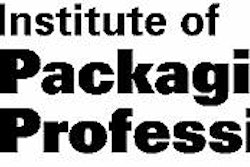So, to him, it makes more sense to use plastic bags because they’re cheaper to make, transport, and store, and they take up less space in a landfill.
That was behind his comments in the business pages of the Milwaukee Journal-Sentinel late in September. To be understood by the average reader, he admitted to cutting a few corners in his comments.
“So how did this all turn into paper versus plastic at the supermarket?” he asks. “Everybody was lied to, that’s how,” he stated. This was after he retold the story of how the plastics business pulled together to mount a multimillion-dollar public
relations offensive after fast-fooder McDonald’s succumbed to environmentalist pressure to move away from foamed polystyrene containers for its hamburgers.
“Never mind that both bags are going to the same dump, where they will still look like shopping bags a hundred years from now,” he wrote. “Surely every aspiring environmentalist knows that we are chopping down real trees to make paper bags, when plastic comes almost free with every gallon of oil.”
That really got my blood boiling because the Orloski household spends a great deal of time and effort to separate its trash and recyclables for our waste hauler. A phone call to the hauler in Green Bay elicited the locations where our recyclables are taken for separation and sorting into recycled fractions by types of material.
In fact, the hauler indicates that it prefers consumers to place recyclable newspapers and mixed paper into paper bags for easier loading by the drivers. Yet, according to Forman, “You only hurt Mother Earth asking for the paper bag, and all the environmentalists knew it all along. Nobody told the truth,” he writes. Polystyrene foam still “isn’t recycled; neither are paper grocery bags, and the tooth fairy is your mom.”
In a phone conversation, Forman explained that he believes plastic bags are superior because they take up less volume, all throughout the supply chain. Or the way he put it, they “will take up 20 times less space in the landfill, where space is what it’s all about.”
Less volume, sure, but 20 times less, I’m not so sure. He also uses the same ratio to say that it would take 20 truckloads of paper bags to match the volume of plastic bags that can be loaded into a single truck.
More than anything, Forman says he believes that stores that offer both bags have higher operating costs than if there was no choice, or if they would totally convert to plastic bags. And he points out that he’s been involved in recycling long enough to understand the economics of the two choices.
Although we use the paper grocery sacks to contain our recycled paper, our household also lines wastebaskets with plastic bags, typically reusing plastic bags from grocery stores or other retailers. So, we’re certainly not against plastic bags, especially the tee-shirt type because its “handles” allow us to tie the bags closed for security. That’s a feature the paper bags can’t duplicate, not to mention the ability to hold wet waste. But the typical paper grocery sack is the perfect size for accumulating newspaper over the week, so we have a bin with two sacks to hold both newspaper and for mixed paper until waste pickup.
Although Forman may not like being asked “plastic or paper?” each time he shops at his supermarket, I think both types of bags have their place as grocery sacks and also in secondary uses, too. He’s entitled to his opinion. But then I discovered that a grocery industry online newsletter had broadcast his report to grocery industry people throughout North America, perhaps even worldwide.
Beyond that dissemination, two other issues irked me. Wisconsin remains a major player in the paper industry, and I didn’t think Forman was sensitive to this prominence. Oh, did I mention that he’s an officer of the Wisconsin chapter of the Institute of Scrap Recycling Industries? Plus, he’s also using his expertise to form a state council on recycling? Since those credentials may have influenced the newspaper, I believe he should have been more positive about paper recycling.
See an archive of Arnie Orloski's Pipeline columns at www.packworld.com/pipeline.
Arnie can be reached at [email protected]


























